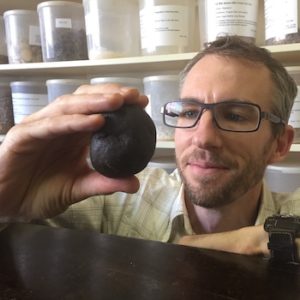Page through the Materia Medica and it is easy to think that Chinese herbal medicine is one unified body of knowledge and practice.
But, it’s not.
If you look closely you’ll see that different formulations come from different dynasties. Some were written in times of famine and war, others first penned during heights of peace, cultural exchange and affluence. While it looks like one coherent collection of prescriptions it is actually a history of doctors striving to cope with wildly different conditions.
In today’s conversation we explore the dosing and cooking methods of some of our oldest and most used prescriptions. Listen in and discover why harmonizing formulas require a particular kind of attention to how they are prepared.
In This Conversation We Discuss:
- The journey from professional snowboarder to temple herb boy
- The reason why scrolls of herbal texts are smaller
- Learning herb medicine the old school way will get you no respect
- Paying attention to the preparation and dosage of different formulas
- Understanding modern and ancient measurement systems
- Have you tried dosing xiao chai yu tang with 120g of chai hu a day?
- Volume, weight and ratios
- Consider wu mei wan for rheumatic arthritis
- Parasitic influences on a person’s mental outlook
- Using the cooking process to improve the ability of a formula to harmonize
- Using gan cao tang for croup
What an amazing profession we are in that we will never stop learning.
Simon Feeney
 I studied Traditional Medicine under a Theravadin Buddhist Monk for the past 25 years. This inspired my formal studies in Melbourne at the Southern School of Natural Therapies where I completed my Bachelor Degree of Chinese Herbal Medicine and Traditional Chinese Acupuncture.
I studied Traditional Medicine under a Theravadin Buddhist Monk for the past 25 years. This inspired my formal studies in Melbourne at the Southern School of Natural Therapies where I completed my Bachelor Degree of Chinese Herbal Medicine and Traditional Chinese Acupuncture.
After finding many clinical insufficiencies with the current TCM, I completed an extensive post-graduate education in Canonical Chinese Medicine under the international acclaimed educator and physician Dr Arnaud Versluys PhD director of Institute of Classical East Asian Medicine (ICEAM).
Driven by a passion for seeing better results for his patients, I spent the last 10 years scaling the planet in search of top quality herbs. I had found that in too many cases the incorrect species or very low quality herbs were made available to most practitioners in Australia. I didn’t stop this search until I found Andrew Ellis from Spring Wind in the United States and started the company Empirical Health.
Now, in partnership with Spring Wind, Empirical Health is the first and only company to bring pesticide free herbs to Australia. Australia’s Chinese Medicine practitioners are very blessed for the opportunity to access these herbs as they are in extremely high demand worldwide.
